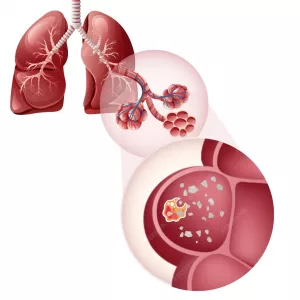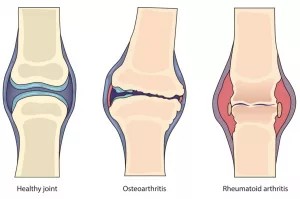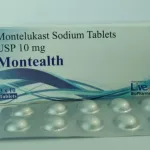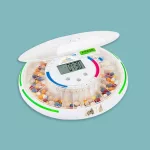Hey there! If you’re reading this, chances are you—or someone you love—has been prescribed Amjevita (adalimumab‑atto) and you’re wondering how it plays with other meds, alcohol, and those “just‑in‑case” supplements you keep in the cabinet. You don’t have to scroll through endless medical jargon to get clear answers; let’s break it down together, step by step, with the same friendly tone you’d get over coffee.
Quick Answer
Amjevita can interact with more than 550 medicines, plus alcohol and many over‑the‑counter supplements. The biggest risks are with drugs that also suppress the immune system, live vaccines, and certain antibiotics. The safest route? Keep a fresh list of everything you take, use a reputable Amjevita interaction checker, and talk to your healthcare team before adding or dropping anything.
Why It Matters
Understanding Amjevita interactions isn’t just about ticking boxes—it’s about protecting the benefits of a powerful therapy while steering clear of serious side effects. When you know the “what ifs,” you can keep the drug working for you, avoid infections, and stay on track with your daily life.
Drug Overview
Amjevita is a biosimilar to Humira, classed as a tumor necrosis factor‑α (TNF‑α) blocker. By calming down the inflammatory fire‑starter TNF‑α, it helps control rheumatoid arthritis, psoriatic arthritis, ankylosing spondylitis, Crohn’s disease, ulcerative colitis, and plaque psoriasis. The typical starting dosage is 40 mg every other week, though doctors may adjust to weekly or an 80 mg dose based on disease activity.
Major Interactions
What the Numbers Mean
According to Drugs.com, Amjevita has 550 known drug interactions: 300 are classified as major, 241 moderate, and 9 minor. That sounds scary, but think of it as a traffic light system—major means “stop and reassess,” moderate means “slow down and monitor,” and minor means “keep an eye out.” Below is a quick visual guide.
| Interaction Level | What It Means |
|---|---|
| Major | Highly clinically significant. Usually avoid the combination. |
| Moderate | Potentially significant. Often avoid unless necessary. |
| Minor | Minimal impact. Monitor but generally safe. |
Commonly Checked Medications
Here are the types of medicines that show up most often when patients run the checker.
| Category | Examples | Typical Interaction | Clinical Tip |
|---|---|---|---|
| NSAIDs / Analgesics | Aspirin, Celecoxib, Meloxicam | Moderate‑to‑Major | Watch for gastrointestinal bleeding; consider PPI protection. |
| Antihypertensives | Amlodipine, Losartan | Minor‑Moderate | No dose change usually needed, but monitor blood pressure. |
| Antidiabetics | Metformin, Glipizide | Minor | No direct effect; keep an eye on glucose levels. |
| Immunosuppressants | Methotrexate, Azathioprine | Major | Combined infection risk; labs (CBC, LFT) every 4‑6 weeks. |
| Antibiotics / Antifungals | Doxycycline, Fluconazole | Moderate | May affect immune response—monitor for signs of infection. |
| Biologics & DMARDs | Cimzia (certolizumab), Enbrel (etanercept) | Major | Generally contraindicated; choose one biologic at a time. |
| Live Vaccines | MMR, Varicella | Major | Must be given ≥ 4 weeks before starting Amjevita. |
| Other Biologics | Abatacept, Anakinra | Major | Combined use can sky‑rocket infection risk. |
How to Manage a Major Interaction
- Don’t panic. Not every “major” flag means you must stop the drug; it signals that a careful review is needed.
- Call your prescriber. Share the medication list and the specific interaction warning.
- Consider alternatives. Sometimes swapping a mild NSAID for acetaminophen resolves the issue.
- Set up monitoring. Lab tests (CBC, liver enzymes, CRP) and clinical checks can catch problems early.
- Document everything. Keep a printed or PDF copy of the interaction report for each appointment.
Sample Monitoring Plan
For patients on a major‐interaction combo (e.g., Amjevita + Methotrexate), a typical schedule might look like:
- Baseline labs – CBC, LFT, renal, TB screen, hepatitis B/C serology.
- Every 4–6 weeks – CBC and LFT to catch early marrow or liver stress.
- Every 3 months – CRP/ESR to gauge disease control.
- Immediate reporting of fever, cough, or new skin lesions.
Alcohol Concerns
What the Evidence Says
There’s no direct chemical clash between Amjevita and ethanol, but alcohol does a nasty thing to the immune system. It can worsen the infection risk that already comes with TNF blockers. Think of it as adding fuel to a fire that’s already smoldering.
Practical Guidance
If you love a glass of wine with dinner, moderation is key—roughly one drink a day for women and two for men. Avoid binge drinking entirely, especially if you have a history of liver disease or hepatitis. Always run your drinking habits by the doctor; sometimes a complete pause is advised during active infections.
Supplement Alerts
Vitamins and herbs feel harmless, but they can still tip the balance when you’re on a biologic. Below is a quick checklist of the most common “over‑the‑counter” friends.
| Supplement | Interaction Level | Why It Matters |
|---|---|---|
| Biotin | Minor | Can interfere with some lab tests; tell the lab you’re taking it. |
| Vitamin D | Minor | Generally safe, but monitor calcium if you’re also on steroids. |
| Turmeric/Echinacea | Potential Moderate | May modulate immune response; discuss before use. |
| Glucosamine/Chondroitin | Minor/Unknown | No solid data; usually well tolerated. |
Whenever you pick up a new supplement, pop it into the same Amjevita interaction checker and share the results with your rheumatologist.
Disease Alerts
Infections & Tuberculosis
TNF blockers lower your body’s ability to contain latent infections. That’s why a TB skin test or IGRA is required before you start Amjevita, and why ongoing vigilance is essential. If you develop a persistent cough, fever, or night sweats—call your doctor right away.
Malignancy Concerns
Long‑term data show a slightly higher incidence of lymphoma and a rare hepatosplenic T‑cell lymphoma, especially when Amjevita is combined with other immunosuppressants. Regular skin checks and routine cancer screenings (colon, breast, prostate) are a smart move.
Heart Failure & Respiratory Disease
Patients with moderate‑to‑severe heart failure or chronic obstructive pulmonary disease (COPD) need extra caution. The interaction database flags these as disease‑specific risks, so your cardiologist or pulmonologist should be in the loop.
Check Your Profile
Step‑by‑Step Checker Use
- Gather every prescription, OTC, supplement, and note your typical alcohol intake.
- Visit a trusted drug‑interaction site (like the one from Drugs.com) and enter each item.
- Review the colour‑coded results—red for major, orange for moderate, green for minor.
- Download the report (PDF) and bring it to your next appointment.
When to Call Your Provider
- Any major flag involving antibiotics, anticoagulants, or other biologics.
- Unexpected moderate warnings that involve your blood pressure meds or diabetes drugs.
- New symptoms—fever, unexplained rashes, joint pain that seems out of character.
Expert Tips
Rheumatology nurse story: Sarah, a 52‑year‑old with RA, once took aspirin daily for heart health while on Amjevita. Her doctor noticed a minor bleed during a routine check‑up and switched her to a low‑dose acetaminophen. Within weeks, her anemia resolved, and her arthritis stayed quiet. The lesson? Even “harmless” meds can shift the balance.
Patient anecdote: Mark, 38, loved a weekend beer. After an upper‑respiratory infection, his doctor told him to pause alcohol until the infection cleared. He complied, and the infection didn’t turn into something worse. He now enjoys a single glass of red wine on special occasions—always with a reminder to stay within moderation.
Both stories underline a simple truth: staying proactive and keeping the conversation open with your care team lets you reap the benefits of Amjevita while sidestepping avoidable problems.
Bottom Line
Amjevita is a powerful ally in the fight against chronic inflammatory disease, but its strength comes with a responsibility to watch what else you’re putting into your body. By maintaining an up‑to‑date medication list, using a reliable interaction checker, and keeping your healthcare providers in the loop, you can protect yourself from major drug‑drug clashes, keep infections at bay, and still enjoy life’s little pleasures—including that occasional glass of wine.
Feeling more confident? Grab the free “Amjevita Interaction Checklist” (PDF) you’ll find at the bottom of this page, fill it out, and share it at your next appointment. And hey—if you’ve navigated Amjevita interactions yourself, share your tips in the comments. We’re all in this together.
























Leave a Reply
You must be logged in to post a comment.